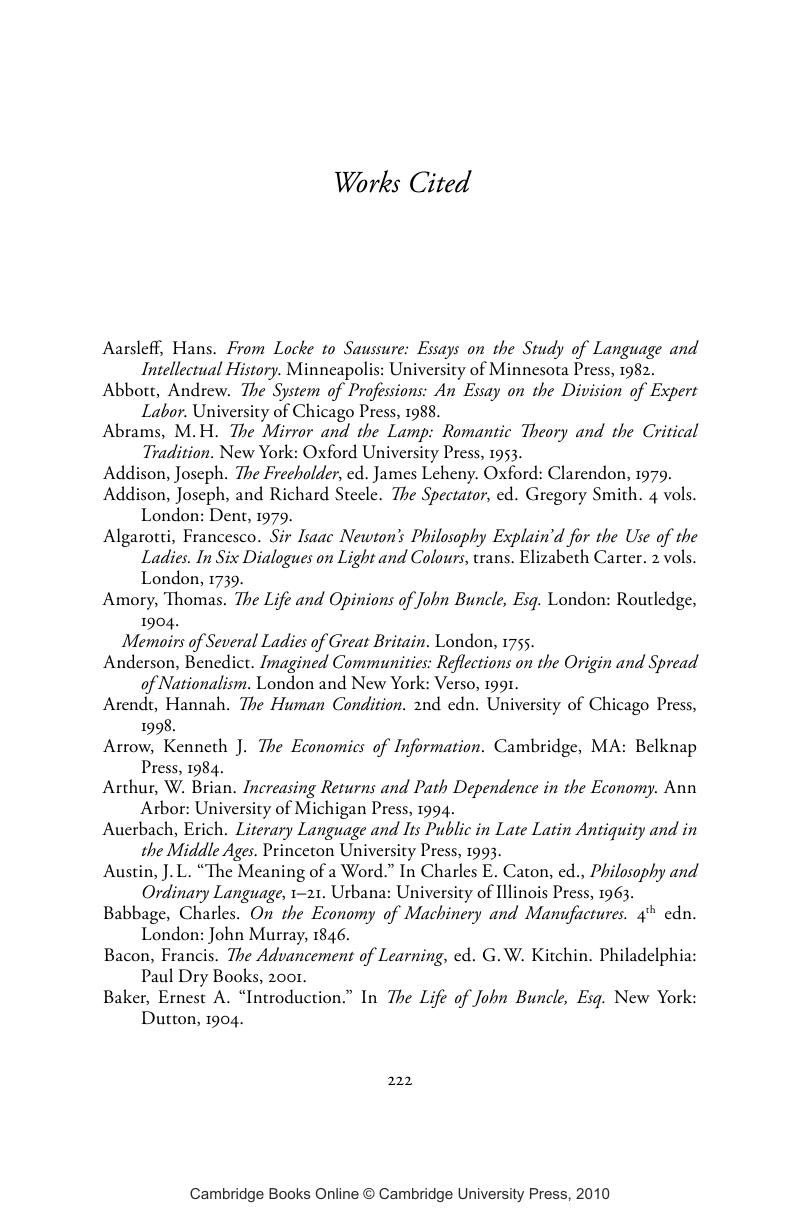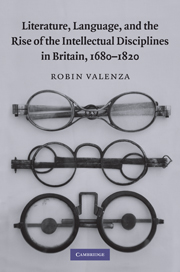Book contents
- Frontmatter
- Contents
- List of Figures
- Acknowledgments
- 1 The Economies of Knowledge
- 2 The Learned and Conversable Worlds
- 3 Physics and its Audiences
- 4 Philosophy's Place Between Science and Literature
- 5 Poetry Among the Intellectual Disciplines
- Coda: Common Sense and Common Language
- Notes
- Works Cited
- Index
- References
Works Cited
Published online by Cambridge University Press: 14 December 2009
- Frontmatter
- Contents
- List of Figures
- Acknowledgments
- 1 The Economies of Knowledge
- 2 The Learned and Conversable Worlds
- 3 Physics and its Audiences
- 4 Philosophy's Place Between Science and Literature
- 5 Poetry Among the Intellectual Disciplines
- Coda: Common Sense and Common Language
- Notes
- Works Cited
- Index
- References
Summary

- Type
- Chapter
- Information
- Literature, Language, and the Rise of the Intellectual Disciplines in Britain, 1680–1820 , pp. 222 - 235Publisher: Cambridge University PressPrint publication year: 2009



